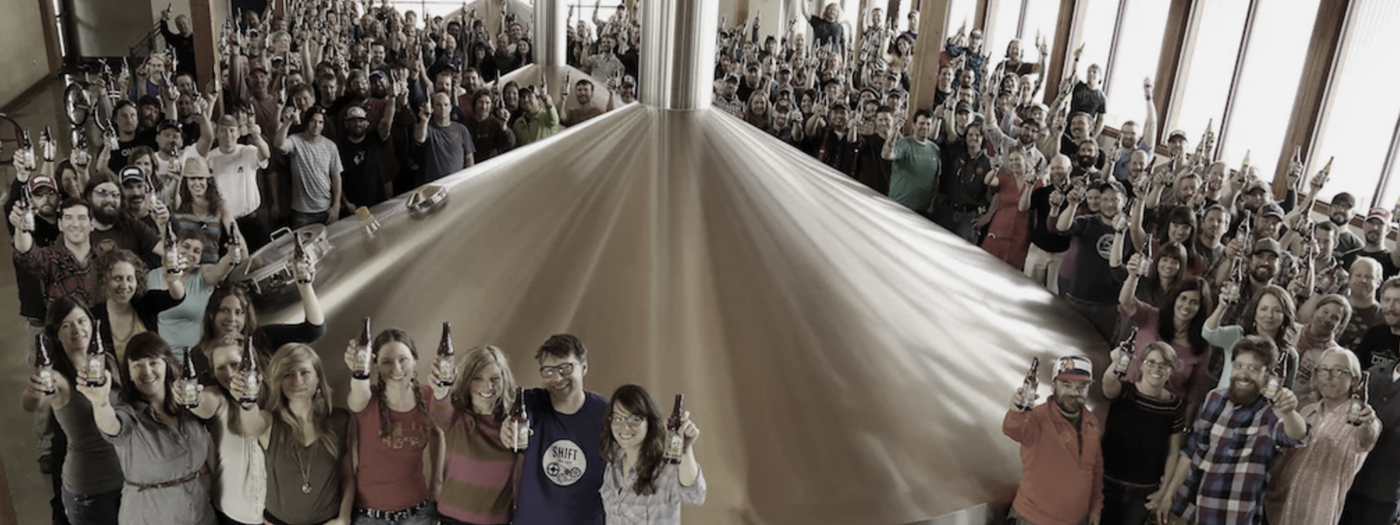What a pleasure, reading Last Call. I love it when we as a field engage in collective moments of reflection. In this post-mortem of New Belgium choosing to leave employee ownership behind, my colleagues shared incredible wisdom on the role of structure, capital, industry growth, culture, and more. After reading and reflecting, I wanted to add my analysis on its implications on the broader goal of systems change. Jason Wiener, in his appeal for us to be practical, wrote that employee-owned companies “operate within a capitalist system (whether we like it or not).”
I want to be clear on two points.
First, on capitalism: we shouldn’t like it. It is inextricably tied to white supremacy, colonialism, worker exploitation, ecological destruction, wealth concentration, and the resulting inequality and inequitable outcomes we see in our society.
Second, capitalism is not inevitable. The focus of our work when we are supporting, advocating for, and building worker-owned companies should be to undermine this toxic system that is destroying humanity and our planet—with the goal of replacing it with a democratic economy that is equitable and sustainable. Building off of the accomplishments of visionary economic thinkers and activists before us, we should think boldly about what a new economic system can look like. And our ultimate aim should be nothing short of liberation for all.
The focus of our work when we are supporting, advocating for, and building worker-owned companies should be to undermine this toxic system that is destroying humanity and our planet—with the goal of replacing it with a democratic economy that is equitable and sustainable.
We should not limit our sights to worker ownership, either. We should be partnering to promote participatory budgeting, expanding the commons, green infrastructure, abolition, a more powerful labor movement, reparations. Those most harmed by our current system should be centered in the decision-making—Black, native, and immigrant communities, the LGBTQIA+ community, people who experience poverty and homelessness. Many of us are currently developing pilot projects, passing laws, building movements, laying the foundation for these new systemic elements to take hold.
But how do employee-owned companies fit into this vision and what are the implications of the sale of New Belgium? In my mind, the implications on our larger work are minimal. New Belgium’s model—worker financial ownership, ecological stewardship, a culture of love, worker participation on key decisions—is viable. I appreciate the leadership and workers of NBB for being another example demonstrating that. On the other hand, they did not center the voices of marginalized populations or implement a democratic governance structure, two elements that are at the core of what our new system should be.
From New Belgium, we learned strategic lessons—all of which were well-articulated by my colleagues in this series—about how to build longer-lasting pilots. We can modify structures, build/find alternative sources of capital, and think strategically about which industries to work in to create examples that last longer. However, at the end of the day, what we should be building toward is not being a slightly bigger part of an extractive economy, but remaking it. That’s the discussion I want to be engaged in with you all: what should we be doing today to lay the foundation for future generations to have a democratic, equitable economic system?
To hear more from Camille Kerr, listen to The Next System Podcast on the End of Employee Ownership at New Belgium.
Camille Kerr promotes workplace democracy at her firm, Upside Down Consulting, specializing in designing innovative worker-centered legal structures, cooperative development in under-resourced communities, policy advocacy and drafting, and supporting existing businesses to become worker-owned. She also serves in an advisory role for multiple organizations, including the Institute for the Cooperative Professionals Guild, the Council of Cooperative Economists, start.coop, the Chicagoland Cooperative Ecosystem Coalition, Certified Employee Owned, EG Woode, and more.




















